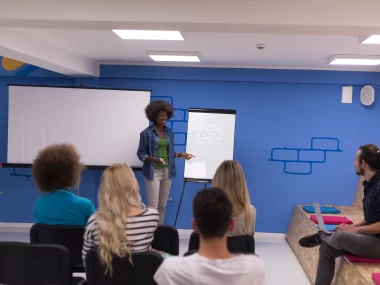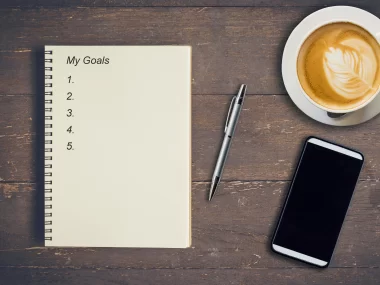Setting and achieving goals for students is a crucial aspect of academic success and personal growth. As someone who has navigated the challenges of student life and now mentors young achievers, I’ve seen firsthand the transformative power of well-defined goals. In this comprehensive guide, I’ll share 15 powerful strategies for setting and achieving goals for students, drawing from my personal experiences and professional insights.
You may be interested in maintaining healthy lifestyle for success
The SMART Approach to Goals for Students
When it comes to setting goals for students, the SMART framework is invaluable. SMART stands for:
- Specific: Clearly define what you want to achieve
- Measurable: Establish concrete criteria for measuring progress
- Achievable: Ensure your goals are realistic and attainable
- Relevant: Align your goals with your overall academic and personal aspirations
- Time-bound: Set deadlines to create a sense of urgency
For example, instead of setting a vague goal like “improve grades,” a SMART goal would be “raise my Biology grade from a B- to a B+ by the end of this semester.”
Balancing Short-term and Long-term Goals for Students
Effective goal-setting for students involves balancing short-term and long-term objectives. Consider:
- Daily goals (e.g., complete all homework assignments)
- Weekly goals (e.g., review notes for upcoming quiz)
- Monthly goals (e.g., finish research paper draft)
- Semester goals (e.g., maintain a 3.5 GPA)
- Long-term goals (e.g., graduate with honors)
This balanced approach helps maintain motivation and provides a clear roadmap for success.
Academic Excellence: Core Goals for Students
At the heart of goals for students are academic objectives. Key areas to focus on include:
- Improving grades in specific subjects
- Enhancing study skills and time management
- Participating more actively in class discussions
- Seeking extra help or tutoring when needed
- Developing better note-taking techniques
Personally, I found that setting specific grade goals for each class motivated me to put in extra effort where it was most needed.
Personal Development Goals for Students
Beyond academics, personal development goals for students are crucial for holistic growth. Consider setting goals to:
- Improve public speaking skills
- Develop better stress management techniques
- Enhance emotional intelligence
- Build stronger relationships with peers and mentors
- Cultivate a growth mindset
These skills will not only support academic success but also prepare students for future challenges.
Extracurricular Goals for Students
Engaging in extracurricular activities is vital for well-rounded development. Goals for students in this area might include:
- Joining a new club or organization
- Taking on a leadership role in a student group
- Participating in volunteer activities
- Developing a new skill or hobby
- Competing in academic or sports competitions
I found that my involvement in debate club significantly enhanced my critical thinking and public speaking skills, complementing my academic goals.
Health and Wellness Goals for Students
Maintaining physical and mental health is crucial for academic success. Consider setting goals for students related to:
- Establishing a regular exercise routine
- Improving sleep habits
- Practicing mindfulness or meditation
- Maintaining a balanced diet
- Seeking support for mental health when needed
Prioritizing health and wellness can significantly impact a student’s ability to focus and perform academically.
Time Management Goals for Students
Effective time management is a critical skill for students. Goals in this area might include:
- Creating and sticking to a study schedule
- Reducing procrastination
- Using productivity tools and techniques (e.g., Pomodoro method)
- Balancing study time with leisure activities
- Prioritizing tasks based on importance and urgency
Mastering time management was a game-changer in my academic journey, allowing me to achieve more while reducing stress.
Financial Goals for Students
Developing financial literacy and responsibility is an important aspect of student life. Consider goals such as:
- Creating and sticking to a budget
- Saving a specific amount each month
- Applying for scholarships or grants
- Learning about personal finance and investing
- Finding part-time work or internships
These financial goals for students lay the foundation for future financial success.
Career Preparation Goals for Students
Even while focusing on current studies, it’s important for students to set career-oriented goals. These might include:
- Researching potential career paths
- Building a professional network
- Creating a LinkedIn profile
- Securing internships or job shadowing opportunities
- Developing industry-specific skills
Setting these goals early can give students a competitive edge in the job market after graduation.
Reading and Continuous Learning Goals for Students
Fostering a love for reading and continuous learning is crucial. Goals for students in this area could include:
- Reading a certain number of books per month
- Exploring topics outside of required coursework
- Attending academic lectures or workshops
- Subscribing to educational podcasts or YouTube channels
- Participating in online courses or MOOCs
Cultivating this habit of continuous learning has been invaluable in my personal and professional growth.
Technology and Digital Literacy Goals for Students
In our digital age, setting goals for technological proficiency is essential. Consider:
- Learning a new software or programming language
- Improving typing speed and accuracy
- Developing digital research skills
- Creating a personal website or blog
- Enhancing social media management skills
These skills can significantly boost a student’s academic performance and future career prospects.
Cultural Awareness and Diversity Goals for Students
Developing cultural competence is increasingly important. Goals for students might include:
- Learning a new language
- Participating in cultural exchange programs
- Attending diversity and inclusion workshops
- Reading literature from diverse authors
- Engaging with international students or communities
These experiences can broaden perspectives and prepare students for a globalized world.
Environmental and Sustainability Goals for Students
Encouraging environmental consciousness is crucial. Consider goals such as:
- Reducing personal carbon footprint
- Participating in environmental clubs or initiatives
- Implementing sustainable practices in daily life
- Educating peers about environmental issues
- Volunteering for local environmental projects
These goals foster responsibility and can lead to meaningful community impact.
Networking and Relationship Building Goals for Students
Building a strong network is invaluable for future success. Goals in this area might include:
- Attending networking events or career fairs
- Building relationships with professors and advisors
- Joining professional associations in your field of interest
- Collaborating with peers on academic or extracurricular projects
- Seeking out mentorship opportunities
I found that the connections I made as a student have continued to benefit me throughout my career.
Reflection and Self-Assessment Goals for Students
Regular self-reflection is crucial for personal growth. Consider setting goals to:
- Keep a daily or weekly journal
- Conduct monthly self-assessments of progress
- Seek feedback from peers, teachers, and mentors
- Regularly review and adjust goals as needed
- Practice gratitude and acknowledge achievements
This practice of reflection has been instrumental in my continuous personal and professional development.
Setting and pursuing goals for students is a powerful tool for achieving academic success and personal growth. By implementing these 15 strategies, students can create a comprehensive framework for success that extends far beyond the classroom. Remember, the journey of goal-setting and achievement is ongoing and personal. Be patient with yourself, celebrate your progress, and don’t be afraid to adjust your goals as you grow and evolve.
As someone who has walked this path, I can attest to the transformative power of purposeful goal-setting. It not only shaped my academic career but also laid the foundation for lifelong learning and achievement. Embrace this process, stay committed to your aspirations, and watch as you unlock your full potential as a student and future professional.
Frequently Asked Questions:
-
Q: How often should students review and adjust their goals?
A: It’s recommended to review goals weekly for short-term objectives and monthly for long-term goals. Major reassessments can be done at the beginning of each semester or academic year.
-
Q: What’s the best way to stay motivated when working towards long-term goals?
A: Break long-term goals into smaller, manageable milestones. Celebrate small victories, use visual reminders like vision boards, and regularly remind yourself of the reasons behind your goals.
-
Q: How can students balance academic goals with extracurricular and personal goals?
A: Prioritize goals based on importance and urgency. Use effective time management techniques, and remember that some goals (like health and wellness) support others. Don’t overcommit; it’s okay to focus on fewer, high-quality goals.
-
Q: What should students do if they’re consistently failing to meet their goals?
A: Reassess the goals to ensure they’re realistic and aligned with your current circumstances. Identify obstacles and develop strategies to overcome them. Don’t hesitate to seek advice from mentors, teachers, or academic advisors.
-
Q: How can parents or guardians support students in setting and achieving goals?
A: Parents can help by discussing goals with their children, providing resources and support, and offering encouragement. However, it’s important to let students take ownership of their goals and learn from both successes and failures.






